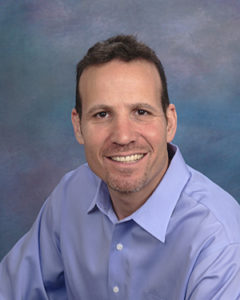
In the era of personalized medicine, cancer patients will often have their tumors biopsied and analyzed as doctors hunt for mutations that are driving the patient’s condition. For some forms of cancer, doctors can recommend therapies that target particular genetic changes.
“The problem is – and this is why cancer is such a tough disease to treat – cancer transforms and changes. So a patient may be diagnosed with a particular mutation and a year later they may have different mutations. Unless we go in and biopsy the patient again and again and again, which can’t be done because it’s just too risky, the only information you have is the information on day one,” Ilan Danieli told Drug Delivery Business News.
But liquid biopsies, like the ones made by Danieli’s company Precipio (NSDQ:PRPO), could change that.
“The idea behind liquid biopsies is to track the genetic changes in the biology of a tumor,” the chief executive said. “We know the tumor is constantly shedding cells in the blood system, called circulating tumor cells, and those cells carry the altered genetic information.”
Monitoring the information carried by circulating tumor cells, doctors can keep track of how the cancer is changing.
“We can do a blood draw, run a test and note that the genetic footprint, the biology of the tumor, has evolved and we need to change the therapy accordingly,” Danieli explained.
Liquid biopsies have grown in popularity in recent years and challenges have cropped up along the way. The latest diagnostics are too expensive and too broad, Danieli noted. There are only a handful of cancer therapies tied to a small group of genetic mutations, so it’s not efficient to run a panel that evaluates hundreds of genes.

“Why would I order a test for 400 genes which costs four, five, eight thousand dollars? The cost is tremendous and oftentimes the patient gets stuck with the bill,” he said.
For patients who are not yet diagnosed with cancer but want to assess their level of potential risk, a broad screening could be helpful.
“However, for the purpose of monitoring a tumor, we want to have a targeted panel and it needs to be cheap,” Danieli said. “The reason it needs to be cheap is that we want to test it again and again and again.
“I think our technology has a real competitive advantage because we are developing a panel that costs $100 to $200 when the healthcare system is spending $10,000 per month on chemotherapy. It’s $100 or $200 to see if the chemotherapy is still effective. I’m putting aside, of course, the terrible pain and suffering the patient goes through when they endure chemotherapy. From a purely economic standpoint, that is a sensible outcome,” he added.
Precipio’s Ice Cold PCR technology, which was developed at Harvard’s Dana-Farber Cancer Institute, is designed to selectively highlight and amplify mutant DNA sequences. The company touts its technology as offering a 500-fold increase in sensitivity when identifying genetic alterations.
The company’s technology also provides a solution for hospitals that want to run these tests in-house rather than outsourcing to an external laboratory, Danieli said.
“If a hospital lab is running any kind of genetic testing, they already have all the equipment you need to run our test,” he said.
Danieli hopes that Precipio’s solutions will enable doctors to monitor their patients, instead of shying away from running multiple tests due to price concerns.
“What we are going to be able to provide is the ability to monitor the patient so that when cancer rears its ugly head and changes, we can catch it quickly and respond to the patient, rather than being reactive over a period of time where the patient has endured damage as a result of having chemotherapy that hasn’t been working,” Danieli said.
“I really think that liquid biopsy is going to be an incredible game changer in how cancer patients are treated. I think it’s going to improve the accuracy of diagnosis and provide tools to the clinician and reduce a lot of waste in the system. Think about how much chemotherapy is wasted because we haven’t noticed that it’s not working,” he added. “The body is sending up signals, we have to look at them and respond.”


What if the cancer was detected way early so there is no need of chemotherapies and its harmful effects? It is really amazing how genetic tests are helping people over globe to detect and cure early.